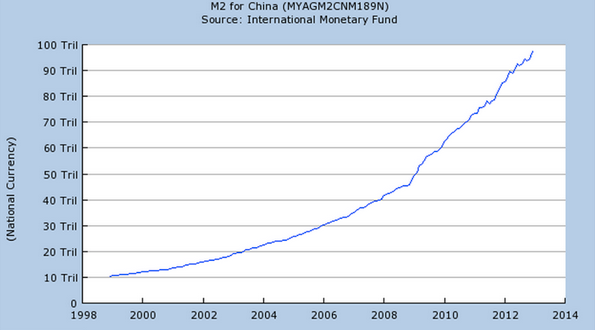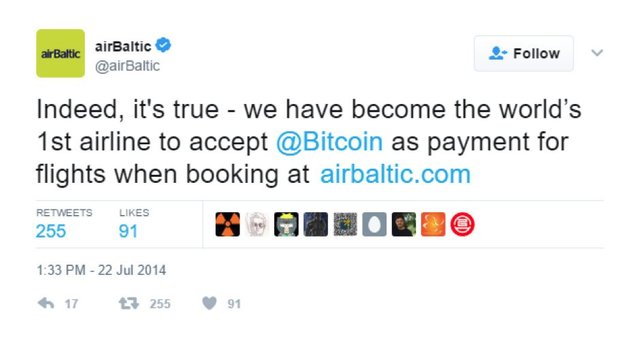A brief History of Bitcoin...
Finance, like most human inventions, is constantly evolving. In the beginning it was basic: food was traded for livestock, and livestock for resources like wood, or maize. It progressed to precious metal, such as silver and gold. And now, the next step in financial evolution has come to light.
This new form of currency has been constantly evolving over the past decade, developed by an unknown person and maintained by a collective group of the brightest minds in technology. It’s a new form of money that is created and held digitally, and the most important part, of course, is that no government owns it, or decides its value - the peer-to-peer network community does.
We call this new money, ‘Bitcoin’.
we all know the us currency based on goldyou could give a dollar to the bank and receive a set amount back in gold. In contrast, Bitcoin isn’t based on silver or gold - it’s based on mathematical proofs validated by a public ledger called blockchain technology.
Bitcoin is generated through a complex sequence of mathematical formulas that run on computers; the network shares a public ledger using blockchain technologies that record, and validate, every transaction processed.
Those who don’t learn from history are doomed to repeat its mistakes – so here is a brief history of Bitcoin and cryptocurrency.
1998 – 2009 The pre-Bitcoin years
Although Bitcoin was the first established cryptocurrency, there had been previous attempts at creating online currencies with ledgers secured by encryption. Two examples of these were B-Money and Bit Gold, which were formulated but never fully developed.
A single institution, such as the government, does not control the Bitcoin network. The idea behind the technology has always been - and remains - one of decentralization - that is, remaining completely independent of a central authority, like a bank, a government, or a country. Anyone can access the open-source software that makes Bitcoin work, and its those individuals interested that maintain it. But, who invented Bitcoin? Is it a valid and legitimate currency like USD? And why did nobody think of this before?
2008 – The Mysterious Mr Nakamoto
A paper called Bitcoin – A Peer to Peer Electronic Cash System was posted to a mailing list discussion on cryptography. It was posted by someone calling themselves Satoshi Nakamoto, whose real identity remains a mystery to this day.
What we do have, however, are facts:
On October 31st, 2008, “Bitcoin: A Peer-to-Peer Electronic Cash System” was posted to a cryptography mailing list, published under the name “Satoshi Nakamoto”. The whitepaper outlined the foundation of how Bitcoin would operate.
On August 18, 2008, an unknown person or entity registered the Bitcoin.org domain.
On January 8th, 2009, the first version of Bitcoin is announced, and shortly thereafter, Bitcoin mining begins.

used of Bitcoin
Currency must have value to ensure stability. The most common way for a person to judge a currency’s value is what they can use it on; Bitcoin is no different, and a host of vendors and merchants now accept it alongside, or in place of, fiat money.
One early adopter of Bitcoin was the computer retailer Dell. In fact, when Dell started accepting Bitcoin, it became one of the largest companies to do so internationally. While the digital currency may total for just a fraction of the retailer’s total transaction volume, there are other key reasons why the growth of Bitcoin could be aboon for the retailer.
Dell reported earnings of $59 billion during 2015. Traditional transaction fees range from 2 to 3 percent of the purchase price - with Bitcoin, it’s much, much lower, nearing non-existent - saving the retailer a lot of money in the future.n addition to Dell, many other companies accept Bitcoin, including airBaltic, an airline that offers tickets to 60 destinations in Europe, the Middle East, Russia, and other select locations. The company posted their announcement on Twitter after adopting the new practice, stating
n addition to Dell, many other companies accept Bitcoin, including airBaltic, an airline that offers tickets to 60 destinations in Europe, the Middle East, Russia, and other select locations. The company posted their announcement on Twitter after adopting the new practice, stating
The future currency Bitcoin
Bitcoin has garnered a lot of attention over the past decade, despite constant declarations of its death - 99 Bitcoins keeps a running tab of ‘Bitcoin obituaries’. Despite all of this, Bitcoin’s future has remained bright. Greater adoption rates, and an increasing number of brands accepting the currency (you can get a full list here) means the long-term view on Bitcoin is that it will see market maturity as time progresses. Mainstream investing vehicles, such as exchange-traded funds (ETFs) and Futures trading, including Bitcoin will be a major help to reaching that market maturity. Bitcoin Futures are already trading on the Chicago Mercantile Exchange (CME), and legislation to create a crypto ETF is in the works. These securities will help stabilize cryptocurrency prices and mitigate volatility, which will help the public’s confidence grow in favor of Bitcoin.
to know more PLEASE COMMENT YOUR QUESTION ...
REFERENCE
genesis-mining
forbes.com


If you want me to upvote and resteem your post to my 36,000+ followers free click here: https://steemit.com/free/@a-0-0/4uvgsy